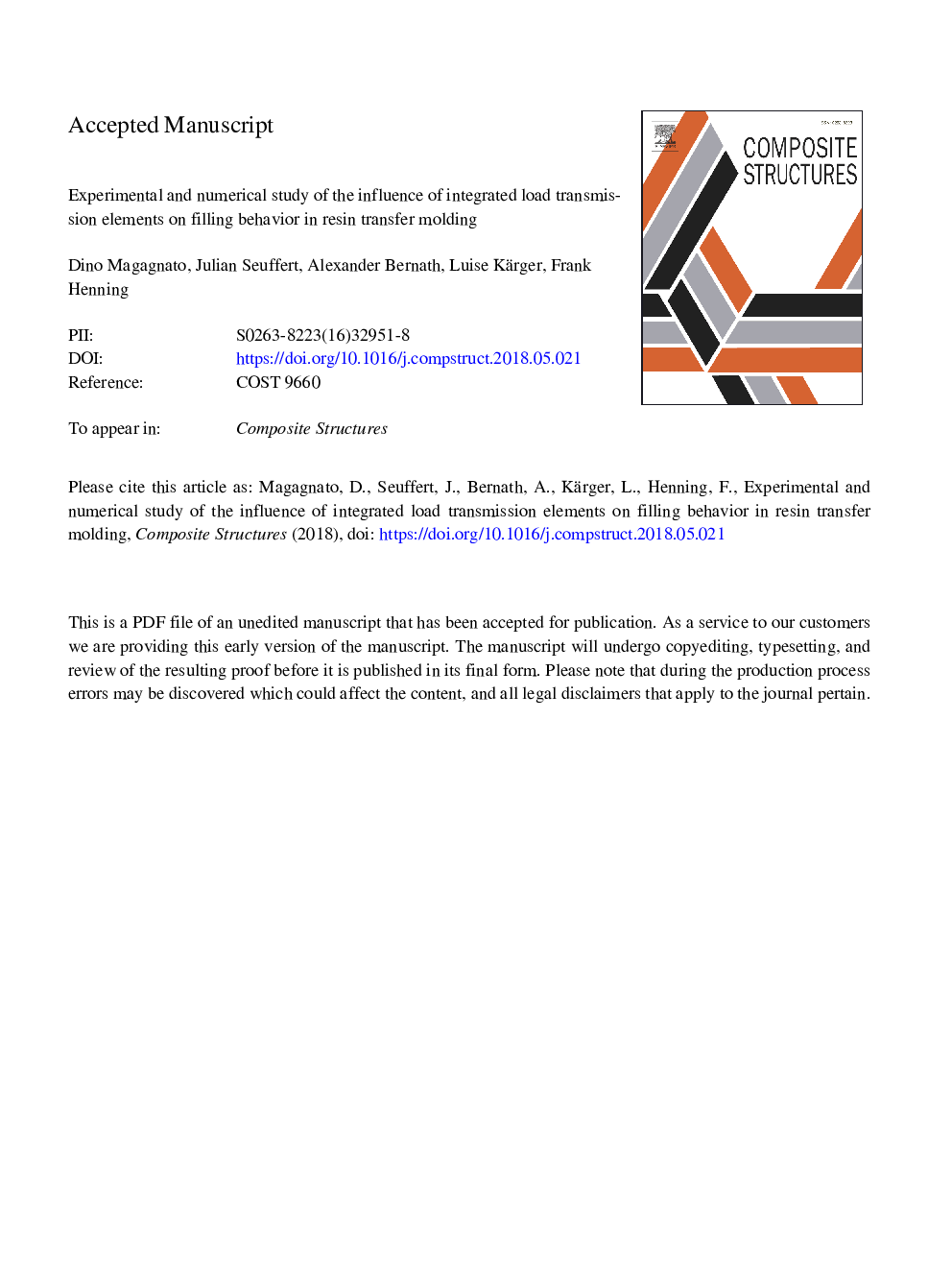| Article ID | Journal | Published Year | Pages | File Type |
|---|---|---|---|---|
| 6703157 | Composite Structures | 2018 | 28 Pages |
Abstract
Manufacturing parts with the resin transfer molding (RTM) process enables the inline integration of load transmission elements (e.g. inserts). During the preforming process, the inserts are installed in the dry fabric and, consequently, influence the following mold filling stage of the RTM process because fiber structure in the vicinity of the insert may considerably vary. Particularly, a high fiber volume fraction next to the insert raises the risk of a formation of dry spots close to the embedded insert. In this study, the influence of an insert on the RTM mold filling is analyzed experimentally and numerically. Two different insert geometries are analyzed: a standard insert and an optimized insert. For a detailed analysis, the influence of the local fiber structure around the insert is included in the simulation. This is realized by analyzing CT images of manufactured parts and transferring the fiber structure information to the simulation model.
Related Topics
Physical Sciences and Engineering
Engineering
Civil and Structural Engineering
Authors
Dino Magagnato, Julian Seuffert, Alexander Bernath, Luise Kärger, Frank Henning,
